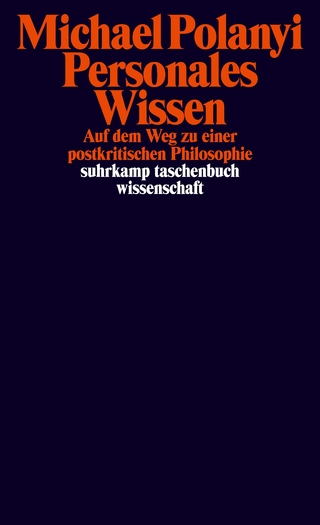
Interdependence
Fordham University Press (Verlag)
978-0-8232-6552-7 (ISBN)
From biology to economics to information theory, the theme of interdependence is in the air, framing our experiences of all sorts of everyday phenomena. Indeed, the network may be the ascendant metaphor of our time. Yet precisely because the language of interdependence has become so commonplace as to be almost banal, we miss some of its most surprising and far-reaching implications.
In Interdependence, biologist Kriti Sharma offers a compelling alternative to the popular view that interdependence simply means independent things interacting. Sharma systematically shows how interdependence entails the mutual constitution of one thing by another—how all things come into being only in a system of dependence on others.
In a step-by-step account filled with vivid examples, Sharma shows how a coherent view of interdependence can help make sense not only of a range of everyday experiences but also of the most basic functions of living cells. With particular attention to the fundamental biological problem of how cells pick up signals from their surroundings, Sharma shows that only an account which replaces the perspective of “individual cells interacting with external environments” with one centered in interdependent, recursive systems can adequately account for how life works.
This book will be of interest to biologists and philosophers, to theorists of science, of systems, and of cybernetics, and to anyone curious about how life works. Clear, concise, and insightful, Interdependence: Biology and Beyond explicitly offers a coherent and practical philosophy of interdependence and will help shape what interdependence comes to mean in the twenty-first century.
Kriti Sharma, a microbiologist, is completing her Ph.D. in Biological Sciences at the University of North Carolina at Chapel Hill.
Table of Contents Introduction - Taking Interdependence Seriously A brief sketch of what's to come Chapter 1 - It Depends: Existence as Contingent Small worlds Introducing key concepts: reality, existence, and contingency Features of contingentism What contingentism is not Signal transduction and the book's organization Encouragement to stick with a challenging topic Chapter 2 - What Do Objects Depend On?: Physical Substance, Matter, and the External World Assumption of the intrinsic boundedness and continuity of objects Assumption of the intrinsic boundedness and continuity of particles Assumption of the intrinsic existence of (emergent) properties Assumption of the intrinsic existence of causal powers Assumption of the unified object of sense perceptions (both within and between observers) Assumption of non-impingement: "Whatever it is, it sure doesn't depend on us" Chapter summary Chapter 3 - What Does Sensing Depend On?: Transduction, Energy, and the Meeting of Worlds An overview of signal transduction Signal transduction and cell sensing Assumption of sameness and difference Assumption of energy as a kind of substance Relating physical and psychological phenomena Re-viewing sensing: new views of transformation and change Chapter summary Chapter 4 - What Do Organisms Depend On?: Bodies, Lives, Selves, and Internal Worlds Assumption of the boundedness and continuity of organisms Assumption of the coordinator and the experiencer Assumption of intrinsically existent "other minds": why do we take one another seriously as subjects? Assumption of a ground: physicalism, idealism, dualism, and contingentism What does your life depend on? Chapter summary Chapter 5 - What Does Order Depend On?: Patterns, Gaps, and the Known World On cognitive patterns and cognitive dissonance: what does order depend on? Assumption of the intrinsic existence of contradictions: what does surprise depend on? Assumption of intrinsic hierarchies of order: what makes a good theory? Assumption of a single origin and a linear history Assumption of knowledge as limited: exactly where are the gaps between organismal experience and reality? Chapter summary Conclusion - Life As We Know It "Nothing but net": thoroughgoing contingency and the absence of inherent existence Why "contingentism"?: genealogies, relations, and intellectual kindred The many forms that wonder takes Coda: Small, vast worlds Acknowledgments: What Does This Book Depend On? References
| Erscheint lt. Verlag | 1.6.2015 |
|---|---|
| Reihe/Serie | Meaning Systems |
| Verlagsort | New York |
| Sprache | englisch |
| Maße | 152 x 229 mm |
| Themenwelt | Geisteswissenschaften ► Philosophie ► Metaphysik / Ontologie |
| Naturwissenschaften ► Biologie ► Mikrobiologie / Immunologie | |
| Naturwissenschaften ► Biologie ► Zellbiologie | |
| ISBN-10 | 0-8232-6552-8 / 0823265528 |
| ISBN-13 | 978-0-8232-6552-7 / 9780823265527 |
| Zustand | Neuware |
| Informationen gemäß Produktsicherheitsverordnung (GPSR) | |
| Haben Sie eine Frage zum Produkt? |
aus dem Bereich


